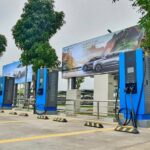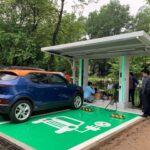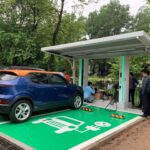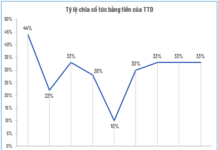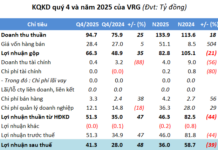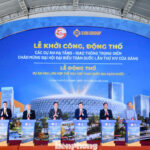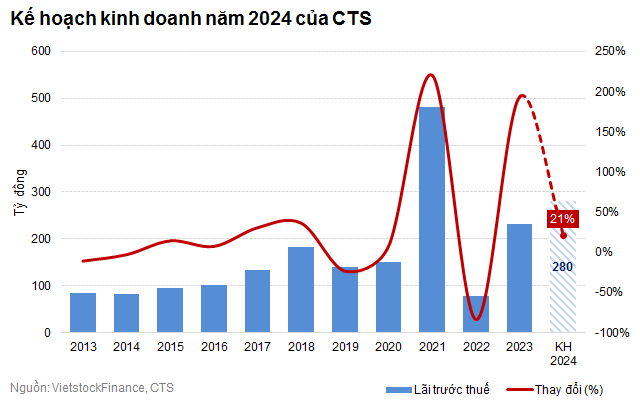The Need for Standardized EV Charging Infrastructure
At the Green Economy Forum, themed “Sustainable Development 2025: A New Era for Green Economic Growth,” organized by Saigon Economic Magazine on August 28 in Ho Chi Minh City, the discussion revolved around the imperative need for standardized electric vehicle (EV) charging infrastructure.
Call for Standardized EV Charging Stations
Ms. Dang Thuy Trang, Director of External Affairs at Grab Vietnam, emphasized the urgency of enacting and refining regulations, standards, and infrastructure related to EV charging stations and battery swap systems. She advocated for a shared infrastructure accessible by all automotive brands, positioning it as a prerequisite for a successful green transportation evolution and Vietnam’s Net Zero ambition.
However, Ms. Trang acknowledged that any significant change, even with good intentions, could lead to disruptions. To navigate this challenge, she suggested the necessity of a supportive EV ecosystem, encompassing charging stations, stable electricity supply, and maintenance and repair facilities. Currently, the readiness of EV charging infrastructure and the capacity of the power grid are foremost concerns.

Experts, entrepreneurs, and administrators engage in insightful discussions at the Green Economy Forum on August 28.
The first group to experience the impact of this transition is ride-hailing and delivery drivers. A recent Grab survey among partner drivers revealed that the investment cost for EVs is high, and accessing financial support remains challenging due to unstable income, lack of collateral, and unfavorable loan terms. Additionally, the current range and charging time of EVs are not yet optimal for their usage patterns.
Shared EV Charging Stations: A Practical Solution
The existing EV infrastructure is inconvenient and unreliable, with a limited number of accessible charging and battery swap stations. High maintenance and repair costs further exacerbate the situation. Most drivers surveyed by Grab indicated that they rent accommodations, and only a small fraction could charge their EVs overnight at home. This underscores the critical need to prioritize the development of a robust EV infrastructure and encourage collaboration among ecosystem stakeholders.
Ms. Trang proposed a strategic approach to establishing a comprehensive public EV charging network, ensuring interoperability and seamless connectivity. She emphasized the importance of rapid expansion to facilitate the widespread adoption of clean energy vehicles.
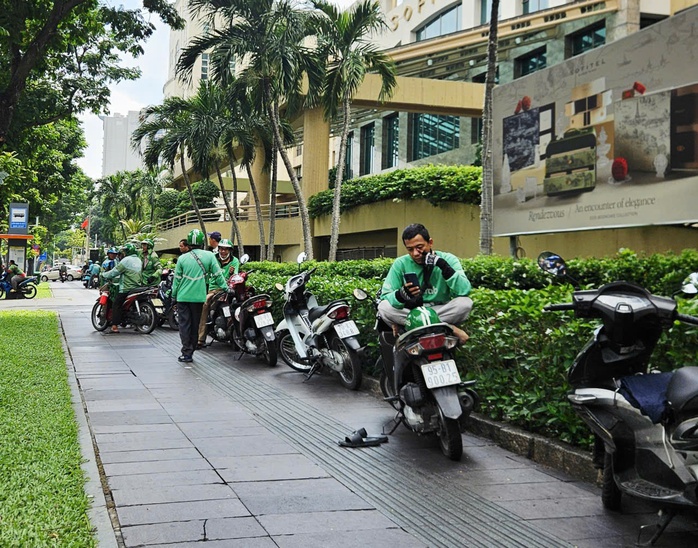
Businesses urged the government to promptly disclose official information about EV charging stations and integrate it into technology platforms.
Additionally, there is a pressing need to establish standards for EV charging stations and battery swap systems, ensuring interoperability among different EV brands. Equally important is the enactment of safety guidelines for EV charging in private residences, rented accommodations, apartments, and residential areas.
According to reporters from the NLD (Người Lao Động), HCMC-based enterprises are actively implementing supportive policies to facilitate the transition to EVs for both customers and drivers.
The Race to Build EV Charging Stations: Korean Conglomerates Join Forces
The expected average charging rate is VND 3,858 per kWh, a price that rivals that of VinFast-operated charging stations and is more affordable than other providers such as EverCharge and EV One.
The $1.2 Billion Energy Giant Enters the EV Charging Game: Announces Competitive Rates of VND 3,858/kWh, on Par with VinFast
PV Power has taken a pioneering step by constructing its first electric vehicle charging station, with plans to rapidly expand across the nation. The company foresees an average charging rate of VND 3,858 per kWh, a competitive price point that matches that of Vinfast and undercuts other providers like EverCharge and EV One.


